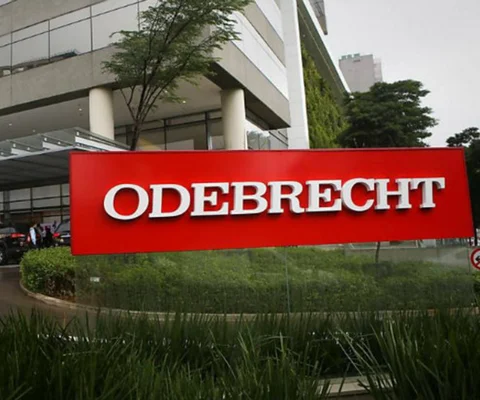
In 2014, the Lava Jato case was uncovered, the largest corruption network in Latin America, which involved Brazilian companies in money laundering, bribery, and illicit financing of political campaigns. This case was revealed when the investigation of a car laundering business began, which ended up finding an unprecedented operation in the region.
The construction company Odebrecht was the most famous company involved in the facts, which paid money bribes and kickbacks to presidents, former presidents, and government officials of 12 countries, and confessed crimes before the justice of the United States, Brazil, and Switzerland in 2016.
Six years have passed, and the “Structured Journalistic Investigations Network” made up of journalists and media from nine countries, conducted an analysis of this case called “Journey to the center of Lava Jato”, to review what happened in recent years and scrutinize how each country faced this case.
Among the media that participated in the report were La Nación (Argentina), Metrópoles (Brazil), Centro Latinoamericano de Investigación Periodística (Colombia), El Universo (Ecuador), Quinto Elemento Lab (Mexico), La Prensa (Panama), IDL Reporteros (Peru), Sudestada (Uruguay) and Armando.info (Venezuela).
Through the investigation, the journalists detected that a large part of the millionaire bribes paid to Latin American officials and politicians, to the detriment of the fiscal coffers, have not been recovered by the governments of the countries involved. Even in countries such as Argentina, Venezuela, and Mexico, the justice system has not issued any sentences against politicians and officials accused of participating in the corruption network.
In fact, in these years only 68 sentences were issued against defendants outside Brazil, and the review of the sentences demonstrates the impunity that prevails in the region, where even the amounts of illicit payments were greater than originally recognized by Odebrecht.
Specifically, in 2016, Odebrecht admitted in Brazil, the United States, and Switzerland that it paid bribes in Argentina for US$ 35 million, although the real amount would amount to US$ 59 million, and admitted only US$ 11.1 million in bribes in Colombia, but would have paid US$ 56.7 million. The same occurred in Mexico (US$ 10.5 million and US$ 24 million), Panama (US$ 59 million and US$ 73 million), Venezuela (US$ 98 million and US$ 142 million), Ecuador (US$ 33.5 million and US$ 73.2 million), and Peru (US$ 29 million and US$ 60.5 million, respectively).
The journalists also indicate that Odebrecht signed effective collaboration agreements with the authorities of Peru, Panama, and Ecuador, but that the prosecutors’ offices of Argentina, Colombia, Mexico, Uruguay, and Venezuela refused to sign collaboration agreements.
Case by case
In Argentina, according to La Nación, two of the investigations are at an advanced stage, with dozens of former officials, businessmen, and intermediaries with confirmed indictments for their alleged participation in the bribes linked to two projects: the construction of a water treatment plant for AySA in Paraná de las Palmas and the extension of the gas pipeline trunk networks. Both investigations have already reached the oral courts, which must initiate the trials, unlike the investigation on the burying of the Sarmiento train. It is still in the hands of Federal Judge Marcelo Martínez.
In Mexico, the former director of the oil company Pemex, Emilio Loyoza, is the only former official of the government of Enrique Peña Nieto in preventive prison, accused of bribery, laundering, and illicit association.
Venezuela has the highest rate of impunity since, even though Odebrecht admitted bribes for US$ 98 million, no investigations were initiated. The construction company even admitted that it contributed funds to the campaigns of Hugo Chávez and Nicolás Maduro and that it bribed a former Minister of Transportation and a dozen politicians.
In contrast, Peru has the highest convictions in the case, including former presidents Alejandro Toledo – on trial since 2017 -, Ollanta Humala, Pedro Pablo Kuczynski, and Alan García – who committed suicide in 2019 when he was about to be arrested – as well as former presidential candidate Keiko Fujimori. The special team of Peruvian prosecutors also has 93 ongoing investigations against 1,131 individuals and 88 companies. Of this total, 102 people have signed the “repentant” regime and three firms have signed “corporate disclosure” agreements.
In addition, Peru recovered US$ 56.6 million from its tax coffers.
Panama is next, among the countries with the most criminal consequences, with 18 defendants convicted, and 13 former officials facing trial, including former President Ricardo Martinelli, who has two of his sons convicted in the United States for conspiring to launder US$ 28 million in bribes. Panama recovered US$ 52.3 million from the treasury.
Ecuador has not recovered the money from the corrupt, while Colombia managed to recover US$ 26.1 million.
Sanctions against Odebrecht
In Mexico and Colombia, Odebrecht (now Novonor) was prohibited from competing for new business with the State and was also fined US$ 89.1 million and US$ 78.9 million, respectively, although in the case of Mexico these penalties were challenged and not paid.
In Argentina, Odebrecht is suspended from the registry of state contractors, so it cannot compete in public projects, but the company was not fined.
Panama and Peru fined Odebrecht US$ 220 million and US$ 240 million, to be paid over 12 and 15 years, respectively, but the company may compete for new contracts with those States.
Venezuela did not apply any fine or sanction, either judicial or administrative, against Odebrecht, which is in the process of closing its offices in the country, where its works have been paralyzed.














